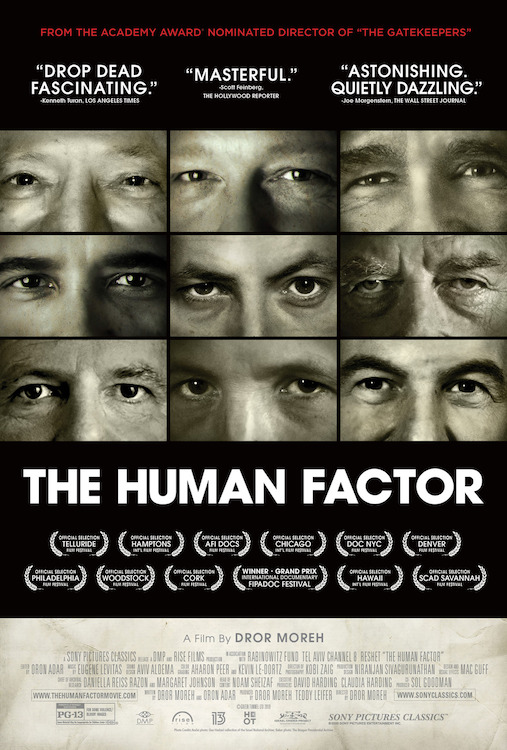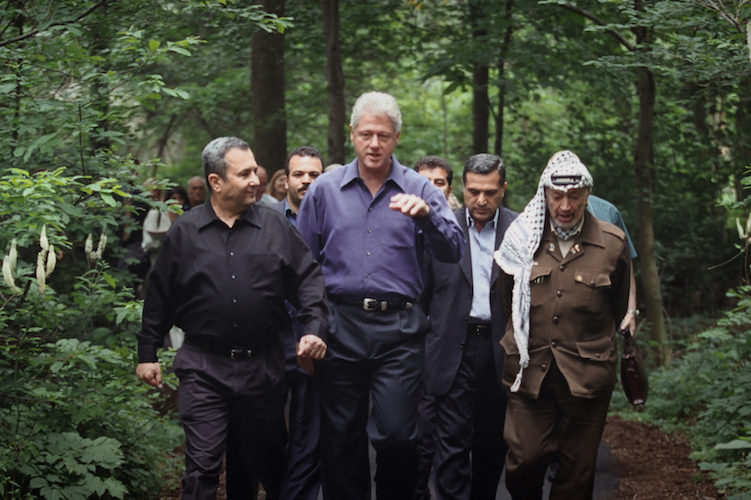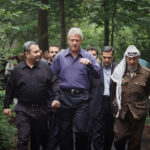Documentarian Dror Moreh’s new film, The Human Factor, is a riveting and illuminating examination of American foreign policy in the Middle East since the mid-1980s and through to the promise of the attempt summit at Camp David near the end of Bill Clinton’s tenure as president. This is an incredibly poignant and timely film that illustrates how this region has shaped American foreign policy for the better part of a quarter century.

The Human Factor is a look behind the curtain with those individuals within the United States government whose job it was to attempt to secure peace between Israel and its neighboring countries to establish a Palestinian homeland. But, what makes The Human Factor a more universal treatise on human nature is the approach it takes to the stance of learning from the mistakes of the past so that they are not perpetuated well into the future. Of course, this is a simple enough lesson to accept, but even harder to adhere to as those lessons are seen to clash constantly with individual egos and ambitions to ultimately derail even the most well-thought out plans for peace.
Constructed around interviews, conducted by director Moreh, with Gamal Helal (senior Arabic interpreter and special Middle East envoy), Martin Indyk (a two-time U.S. Ambassador to Israel), Daniel Kurtzer (a former ambassador to both Egypt and Israel), Robert Malley (the special assistant to President Bill Clinton for Arab-Israeli affairs), Aaron Mill (a State Department analyst specializing in the Middle East), and Dennis Ross (an advisor on the Middle East to four presidential administrations), The Human Factor succeeds in giving the diplomatic process an identity and, if you will, a soul. Which makes it all the more infuriating when it ultimately fails to come to fruition and the conflicts inevitably resume.

Tragically though, that truce would not last and the American effort to secure peace in that region of the world would ultimately fail. But, The Human Factor maintains that this was not for lack of trying or the absence of a desire for peace on any side, only that it was not the right time, but perhaps someday that time will come.

| Producer: | Dror Moreh, Teddy Leifer |
| Release Date: | January 22, 2021 in New York (elsewhere TBD) |
| Running Time: | 108 minutes |
| Starring: | Dennis Ross, Martin Indyk, Gamal Helal, Aaron David Miller, Daniel Kurtzer, Robert Malley |
| Writer: | Oron Adar, Dror Moreh |
| MPAA Rating: | PG-13 (or some violence/bloody images) |
| Director: | Dror Moreh |
| Distributor: | Sony Pictures Classics |
| External Info: | Official Site / Facebook |
